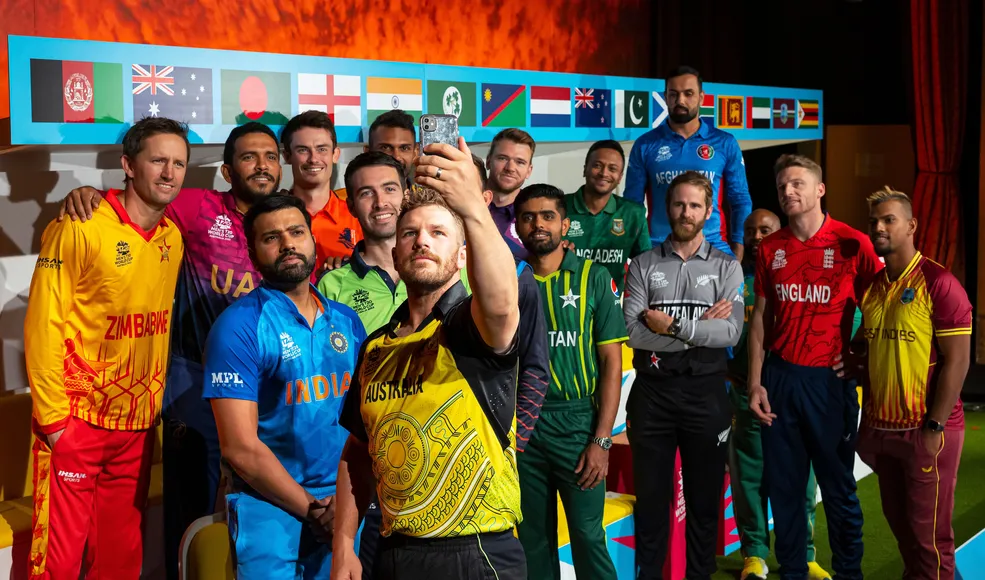Decoding inconspicuous flaws of the T20 World Cup 2022

Even in the era of IPLs, BBLs, and Hundreds, World Cups – whether it is T20Is or ODIs – take the centre stage upon their arrival. Yet, in the build-up to the ongoing World T20, there were a certain number of slip-ups that could have been easily avoided in order to make it fair and square.
Though international fixtures no longer dominate cricket because of ever-growing worldwide franchise competitions, ardent fans still avidly wait for the glitziest World Cup events. However, the new age of the sport, often allowing fireworks into the night sky and recalibrating the entire economy around it, is yet to make an impact on the followers who thoroughly enjoy the game’s showpiece competitions. One such handsome tournament is the T20 World Cup, run by the International Cricket Council (ICC). Yet, many errors need to be corrected to ameliorate the championship.
Without any prior knowledge of how the teams are competing against each other in the just-begun T20 World Cup in Australia, one would be shell-shocked if he or she switches on the television and watches Sri Lanka – the reigning Asia Cup champions – pooled into one of the two qualifying round groups. The Islanders might not have been in the best of forms in recent years and also endured an infamous defeat against Namibia in the curtain raiser yesterday, but it is probably fair to believe that they deserved one of the eight direct Super 12 qualification spots. Not to forget, they defeated India and Pakistan (twice) in the subcontinental championship last month in the UAE, and also sit eighth in the current ICC T20 Rankings.
A day Namibia won't forget anytime soon 😍#T20WorldCup pic.twitter.com/KCdzxUORsb
— ICC (@ICC) October 16, 2022
Now, the question that pops into everyone’s mind is whom they could replace. In contrast, take Bangladesh as an example. They are currently the ninth-ranked T20I team in the world, having managed to win four times in 16 attempts in this format in 2022. Moreover, these triumphs came against Afghanistan, Zimbabwe, and the UAE (twice). On the other hand, Sri Lanka had seven victories in 18 matches, including twin wins over defending world champions Australia. The others came against Bangladesh, Afghanistan, India, and Pakistan.
With all due respect to Bangladesh, can’t Sri Lanka, the 2014 World T20 champions, take their spot?
But the ICC works bizarrely when it comes to the T20 World Cup. The cut-off for the top eight-ranked teams that make it to the super 12 in the ongoing T20 World Cup versus those that have to play in the Qualifiers was November 15 last year, just a day after the previous edition’s final. Does this make any sense? A team such as Sri Lanka that is doing exceptionally well in the World Cup year are not getting the deserved automatic qualification because they ranked below Bangladesh when the last World Cup ended. Even Afghanistan are ranked 10th at present and yet have directly made the cut in Super 12s.
Now let us jump into another crucial error. To get four teams in the ongoing World Cup Qualifying rounds, the ICC divided 16 teams into four separate groups. Two of the groups were in Qualifier A and the remaining two were in Qualifier B. They played semi-finals, finals, and playoff matches, and then the finalists from Qualifier A (Ireland and the UAE) and Qualifier B (Zimbabwe and Namibia) earned places in the Qualifying rounds.
Was this grouping required? If you had to find four best teams from two Qualifiers, why did not you make them play in a league format? If that would happen, every team could get ample chances to showcase its best version against every competitor, and it would have been fair for all parties. But here, due to the Group system, Bahrain did not reach the semi-finals despite winning twice in three matches. Ireland and the UAE, who advanced to the next phase from their group and reached the Qualifier, had the same number of wins as Bahrain, but they progressed only due to a better net run rate.
These playoffs, semi-finals, and finals in the Qualifiers were irrelevant. Instead, the council could have asked every team to compete against each other, which would have had a higher probability of obtaining the two actual best teams.
16 teams, 4 groups of 4. #T20WC
— Peter Miller (@TheCricketGeek) October 16, 2022
A genuine question that many look for answers to is how the ICC decides whom to place in which group in the Super 12s. In the elite tournaments in football, such as Champions Leagues and World Cups, teams get placed in different groups in front of thousands of cameras and a live audience. That brings clarity to the teams as well as to the fans watching. If you term cricket a ‘global sport’ such as football, transparency is the key.
The ICC sets the qualification phase as a part of the main event to provide associate nations with a better platform. Yet, they host warm-up fixtures simultaneously in more popular venues, such as the Gabba and Perth, than the stadiums where the qualification round matches are taking place. Unsurprisingly due to that, the attendance in Geelong during the UAE versus the Netherlands game was significantly less than its 26,000 capacity. Thus, attendance or fan interest has not been impacted positively, or safe to say, anywhere near a significant extent.
Opening night of the 2022 T20 Cricket World Cup in Australia. Doesn't look like there's even 500 people inside what is currently a 26,000 capacity venue in Geelong. Doesn't matter if it's Netherlands v UAE or any other team. This looks incredibly bad for @ICC. cc @EmptySeatsPics. pic.twitter.com/FRXL95lG12
— Peter Della Penna (@PeterDellaPenna) October 16, 2022
Last year when Oman hosted the T20 World Cup alongside the UAE, none of them qualified for the tournament automatically. While Oman had to play the qualifiers, the UAE did not even get a place in Round 1. The hosting countries must receive automatic qualifications for the sake of their players and attract more local audiences to make the sport bigger and better. Thankfully, the ICC has finally agreed with that and has decided it will be a reality from the 2023 World Cup onwards.
With great razzmatazz, franchise competitions have already become predominant in cricket. Hence, the ICC should correct the silly mistakes in one of the game's grandest events before it becomes too late and takes away a chunk of the supporters. After all, this is the T20 World Cup, not any random cricket tournament.

Comments
Sign up or log in to your account to leave comments and reactions
0 Comments